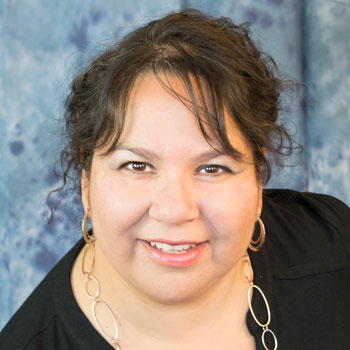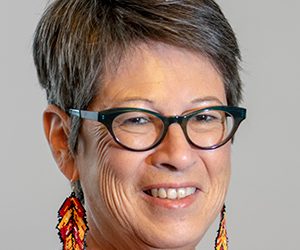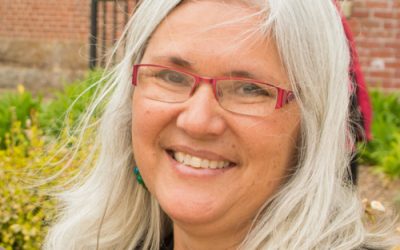Indigenous Women in Community Leadership (IWCL) 2024
May 1 – October 11, 2024
- May 1 – 15, 2024: Online Learning Component
- June 5 – 19, 2024: In-person, 1st Residency, Coady Institute
- June 20 – September 30, 2024: In-community Engagement Component
- October 6 – 11, 2024*: In-person, 2nd Residency, location TBA
*Dates may be subject to change
Applications for this program have closed.
Facilitators: Karri-Lynn Paul and Krista Hanscomb
Indigenous women are natural leaders and decision-makers, keepers of knowledge, culture, and language, protectors of land and water, activists and cycle-breakers. They are forging the path to healthy, sustainable and self-determination communities. This program was created to support these leaders. It is grounded in relational practices and mentorship opportunities that will build upon their trusted leadership capacities for community-led, community-driven work. IWCL’s approaches to community building and social change are rooted in individual and collective responsibility, reciprocity to the community, and relationship to one another and the land.
Approach to Learning
This program uses a holistic and Two-Eyed Seeing approach, meaning that teaching and learning practices are grounded in Indigenous worldviews, values and teachings while sometimes using other tools and methods that align with those practices. Participatory and experiential methods guide participants to reflect upon and share their experiences to deepen learning while building a circle of connection and support with one another. Culturally relevant learning includes land-based activities, sharing circles, Elder/Knowledge Keeper teachings, storytelling, skill-building, self-reflection exercises, and visits to local Indigenous communities are some ways participants engage in meaningful and reflective learning. Key pieces of the program include the development of a community project and a mentorship opportunity with an experienced Indigenous woman leader.
Learning Outcomes
- Relational Leadership Competencies
Participants will develop an in-depth understanding of relational leadership rooted in Indigenous worldviews. They’ll gain skills in building meaningful, reciprocal relationships with community members based on shared values and mutual respect.
- Understanding of Abundance-Based Community Building
Graduates will be skilled at identifying and mobilizing community assets for sustainable development. They’ll leave the program with a solid grasp of how to apply an abundance-based approach to community engagement and development, focused on recognizing and harnessing existing gifts, strengths and assets.
- Practical Skills in Project Management and Community Research
Upon completion, participants will have the tools to effectively plan, execute, and evaluate community projects. This includes research skills that incorporate both Indigenous and Western methodologies, allowing for a more holistic understanding of community needs and resources.
- Competence in Communication and Networking
Participants will hone communication skills and learn effective networking strategies. This not only benefits them on a personal level but also serves to strengthen their community’s reach and influence.
- Personal and Collective Self-Awareness
Participants will deepen their self-awareness and emotional intelligence through self and group reflection exercises and sharing circles. They will identify their individual strengths and areas for growth and learn how these personal attributes intersect with collective responsibilities and community well-being.
- Skills in Advocacy and Social Change
Participants will acquire effective techniques for advocacy that align with Indigenous values of collective responsibility and reciprocity. They will be prepared to engage with crucial Indigenous issues in ways that instigate real, community-driven change.
- Sustained Commitment to Lifelong Learning and Mentorship
Finally, graduates will have a strong support network and a rooted commitment to ongoing learning and mentorship. They will benefit from and contribute to the IWCL and Coady graduate networks, facilitating continuous learning and community betterment.
The IWCL program fosters individual growth and contributes to building resilient and self-determining communities.
You are a great candidate if you are/have:
- A First Nations, Métis, or Inuit woman committed to and actively working to make positive change in your community, organization, or Nation.
- A diploma/undergraduate degree or higher in combination with sound oral and written abilities.
- Minimum of 5 years experience in community work at emerging or mid-career leadership level.
- Limited exposure to leadership training or other educational opportunities.
- Committed to being accountable to staff, fellow participants and mentors throughout the program.
- Committed to applying your learning in your community or organization.
- Committed to ongoing learning and collaboration within IWCL and Coady graduate networks.
Key Skillsets
- Abundance-based community building
- Relational leadership
- Strategic and critical thinking
- Holistic and decolonizing approaches
- Project management and research
- Communication and networking
Personal benefits include:
- Engaging as Indigenous leaders with the most crucial issues of our time;
- Applying an abundance-based, community-driven approach to leadership and community work;
- Learning from our collective lived leadership experiences;
- Identifying Indigenous leadership values and practices to live and lead by;
- Building self-awareness by discovering your strengths, capacities and areas for growth;
- Learning practical tools and strategies to lead community-driven change;
- Designing and completing a community project;
- Networking with a motivated and diverse group of Indigenous women change-makers.
Organizational benefits include:
- Having someone who uses abundance-based and community-led tools and approaches to lead;
- Having a leader who builds on the strengths and gifts of people and communities
- Having a leader with a strong collective and shared vision for the future.
Fees/Scholarship
Successful candidates will receive a full scholarship that includes tuition and program materials as well as essential travel, accommodations, and meals during the on-campus residencies of the program. All other expenses are your responsibility. You may be requested to verify your Indigenous affiliation. Scholarships are made possible through the Circle of Abundance campaign donors and institutional and private donors who share Coady’s vision of community-based, community-led change.
Graduates in the News
Amplifying Indigenous Art and Culture through Storytelling
Lynda Fox Trudeau is an Anishinaabe-Odawa woman from Wiikwemkoong Unceded Territory located on Manitoulin Island, Ontario, Canada. A graduate of Coady’s Indigenous Women in Community Leadership program (2015), she is the General Manager for the Debajehmujig Theatre Group.
For Future Generations: Supporting Indigenous Women Leaders through Mentorship and Advocacy
Karen MacKenzie is a proud Cree-Métis woman, business owner, knowledge keeper, community supporter, and a program Mentor for Coady Institute’s Indigenous Women in Community Leadership (IWCL) program.
Sharing Our Knowledge: Mentor Dedicated to Advancing Indigenous Education
One of the key components of Coady Institute’s Indigenous Women in Community Leadership (IWCL) program is connecting program participants with the guidance and support of experienced Indigenous women mentors. Gaya’do:węhs Lu Ann Hill-MacDonald is a Mohawk woman of the Bear Clan from the Six Nations of the Grand River Territory, Ontario, Canada. As an Education Consultant, she is dedicated to advancing Indigenous education programs.


